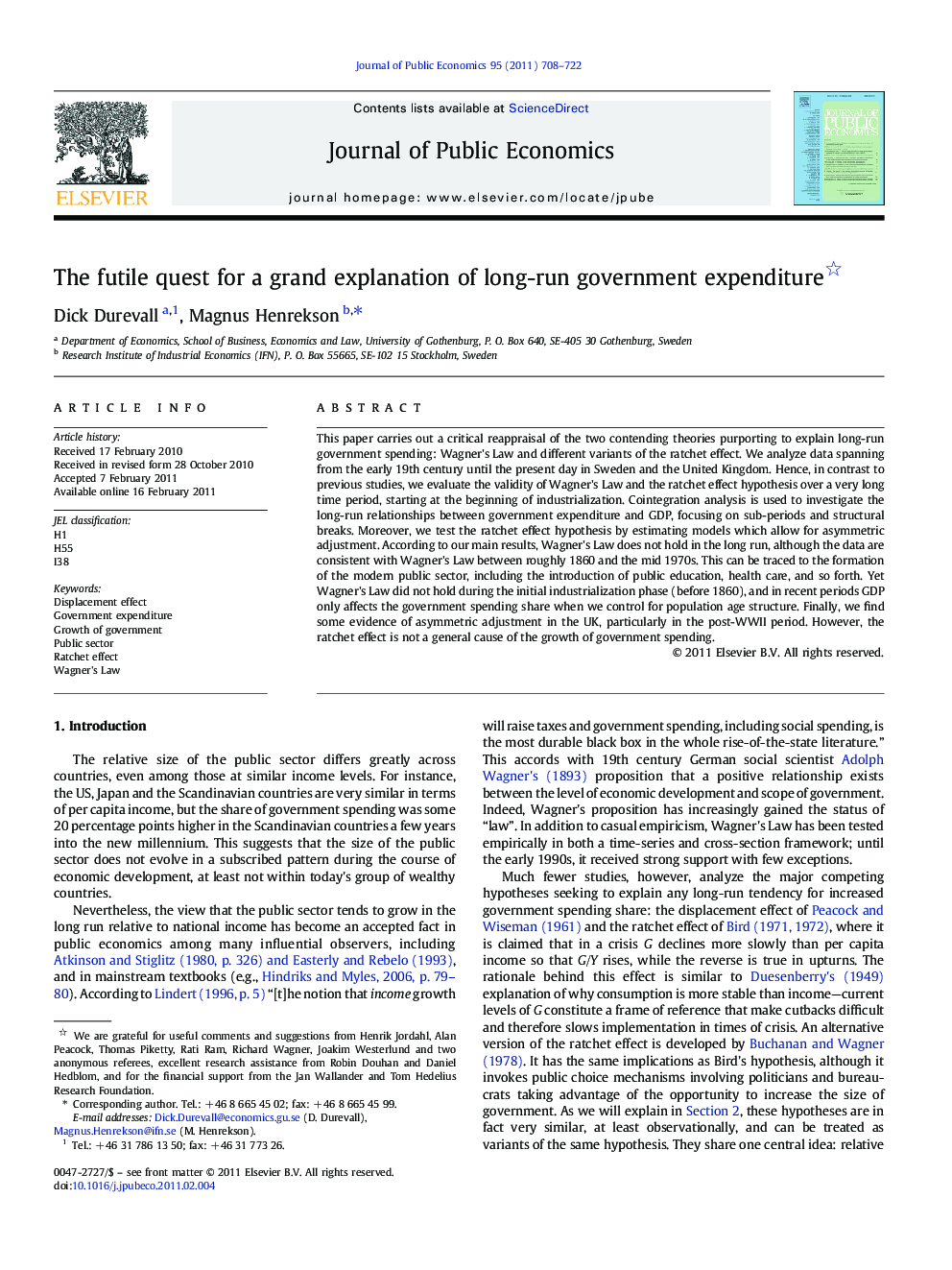| کد مقاله | کد نشریه | سال انتشار | مقاله انگلیسی | نسخه تمام متن |
|---|---|---|---|---|
| 969363 | 1479469 | 2011 | 15 صفحه PDF | دانلود رایگان |

This paper carries out a critical reappraisal of the two contending theories purporting to explain long-run government spending: Wagner's Law and different variants of the ratchet effect. We analyze data spanning from the early 19th century until the present day in Sweden and the United Kingdom. Hence, in contrast to previous studies, we evaluate the validity of Wagner's Law and the ratchet effect hypothesis over a very long time period, starting at the beginning of industrialization. Cointegration analysis is used to investigate the long-run relationships between government expenditure and GDP, focusing on sub-periods and structural breaks. Moreover, we test the ratchet effect hypothesis by estimating models which allow for asymmetric adjustment. According to our main results, Wagner's Law does not hold in the long run, although the data are consistent with Wagner's Law between roughly 1860 and the mid 1970s. This can be traced to the formation of the modern public sector, including the introduction of public education, health care, and so forth. Yet Wagner's Law did not hold during the initial industrialization phase (before 1860), and in recent periods GDP only affects the government spending share when we control for population age structure. Finally, we find some evidence of asymmetric adjustment in the UK, particularly in the post-WWII period. However, the ratchet effect is not a general cause of the growth of government spending.
Research highlights
► A reappraisal of the two contending theories of long-run government spending: Wagner's Law and the ratchet effect.
► Uniquely long data series spanning more than 200 years for Sweden and 177 years for the UK.
► Use state-of-the-art econometrics methods.
► Wagner's Law does not hold in the long run, although the data are consistent with Wagner's Law between roughly 1860 and the mid 1970s.
Journal: Journal of Public Economics - Volume 95, Issues 7–8, August 2011, Pages 708–722